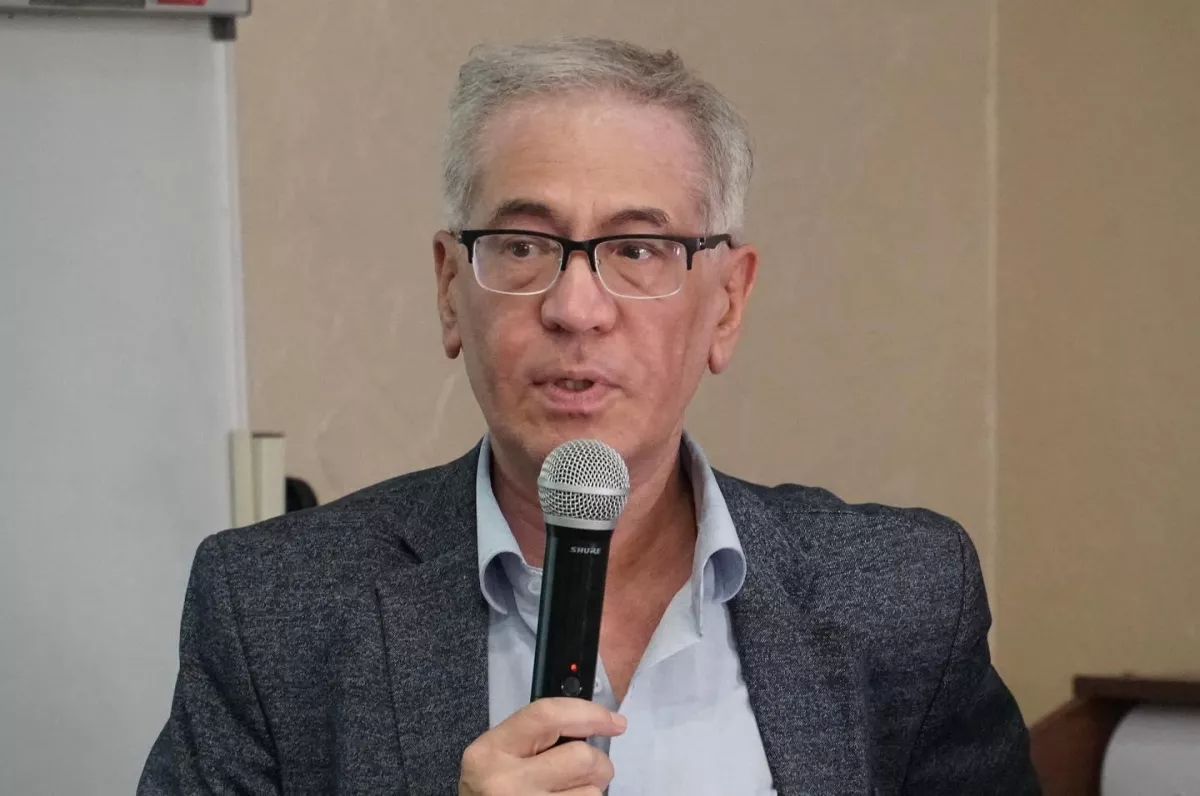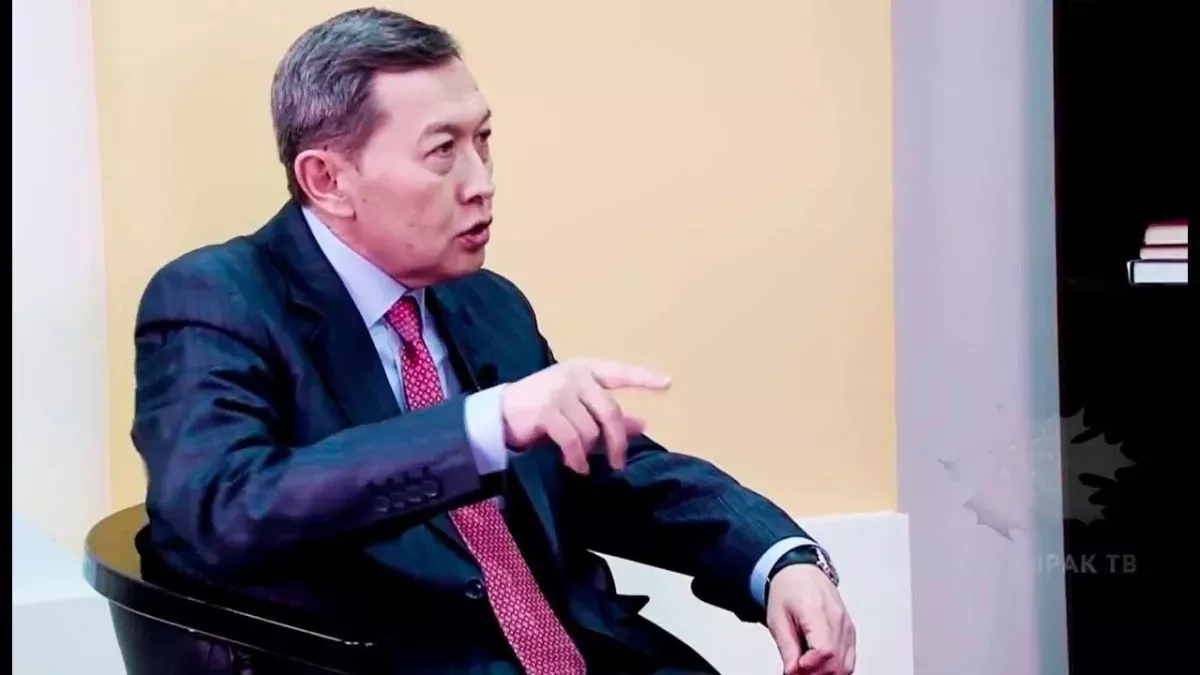What threats do Afghan-based extremists pose to Tajikistan? Experts weigh in
The Jamaat Ansarullah group, based in Afghanistan, is preparing for military operations in Tajikistan. According to foreign media reports, this information comes from the Russian Center for the Study of Modern Afghanistan. It is noted that more and more "jihadists" from Syria, Iraq, and Afghanistan are joining the group every day. The leader of Jamaat Ansarullah has been appointed to oversee military operations along the Afghan-Tajik border and in Tajikistan itself.
Jamaat Ansarullah, which is controlled by the Taliban and also referred to as the "Tajik Taliban," is an opposition group to the Tajik government, based in Afghanistan's Badakhshan province, which borders the corresponding region of Tajikistan. The group was founded in 2006 and advocates for the transformation of Tajikistan into an Islamic emirate. The current leader of the organization, Muhammad Sharifov, also known as Mehdi Arsalon, is a citizen of Tajikistan.
During the upcoming Collective Security Treaty Organization (CSTO) summit in Astana on November 28, a crucial program on the arrangement of the Tajik-Afghan border will be adopted. This was announced by the CSTO Secretary-General, Imangali Tasmagambetov, in an interview with Belarusian television channel STV.
"This year, the Collective Security Council will adopt a very important document — an intergovernmental program aimed at securing and arranging the Tajik-Afghan border, as Afghan-related issues remain one of the most pressing areas of CSTO activity," Tasmagambetov said.
According to him, while the situation in the region appears to have stabilized, "there are still many terrorist organizations operating in Afghanistan, and the problem remains very serious."
"The signing of this program will undoubtedly allow CSTO member states to jointly secure this border area, thus ensuring the safety of the Central Asian countries," said the CSTO Secretary-General.

This move may be in response to earlier alarming warnings from Dushanbe. On June 3, during a session of the CSTO Parliamentary Assembly in Almaty, the Chairman of the upper house of Tajikistan's parliament, Rustam Emomali, stated that Afghanistan had once again become a hotbed of terrorism and a source of security threats on the southern borders of the CSTO.
"We cannot ignore the potential threats on the southern borders of the Organization that stem from neighbouring Afghanistan. The current situation in this country, due to a number of factors, remains difficult, and unfortunately, we have not seen any real progress or improvement. Afghanistan has once again become a breeding ground for terrorism, with dozens of terrorist and extremist groups strengthening their positions there," Emomali said.
He also warned about the growing risks of the "spread of destructive religious radicalism from the Afghan direction to our countries."
"Currently, more than a thousand religious madrasas have been established in Afghanistan, most of them located in provinces bordering the southern borders of the CSTO. These centres train, among other things, suicide bombers," emphasized Emomali, adding that this could have long-term negative consequences for the CSTO region.
The question arises: What might the outcome be? How strong is Tajikistan today, and what are the sentiments of its people when it comes to defending against a potential radical attack? And, is the CSTO prepared to come to Tajikistan's aid if such an event occurs?
To shed light on this situation, Caliber.Az spoke with foreign experts about their views on the matter.

Tajik political analyst Parviz Mullojanov believes that the Tajik-Afghan border will be strengthened, as there is a broad consensus among regional and global players, ranging from Western countries to CIS states, on this issue.
"Therefore, funds for these purposes will be allocated from various sources. The reason for this consensus lies in the fact that Afghanistan under Taliban rule does not inspire much trust or confidence among its neighbours or the international community as a whole. At the same time, everyone understands that the Taliban’s rule in Afghanistan is likely to last for the long term, and at some point, the world will have to negotiate and communicate with them. Each country or group of countries (such as CIS member states) is choosing its own strategy and policy toward the Taliban. On the one hand, efforts are being made to establish dialogue and cooperation with the Taliban, and on the other hand, measures are being taken to prevent potential negative scenarios – including by strengthening state borders with Afghanistan," the analyst noted.
According to Mullojanov, in the event of a significant escalation along the Tajik-Afghan border, CSTO member states, under existing agreements, would be obligated to provide Tajikistan with comprehensive military and technical assistance to repel potential aggression from the Taliban or their allies — and this is likely to happen.
"In Tajikistan itself, based on social media and online media analysis, public opinion is generally extremely critical of the Taliban. Therefore, in the event of potential aggression, Tajik border guards and military forces can count on broad support from the population, both nationwide and in the border regions," Mullojanov believes.

Kyrgyz political expert, historian, and professor Askar Dzhakishev stated that Tajikistan, with its nearly 1,400 km border with Afghanistan, is the most vulnerable link in the CSTO’s perimeter of borders.
"This explains the concerns of CSTO member states. This issue is especially critical given Russia's deep involvement in the military operations in the Special Military Operation zone. In this regard, it seems that Russia is relying on a more substantial contribution from the Central Asian members of the alliance for securing the Tajik-Afghan border," said the professor.
Dzhakishev emphasized that since the Taliban's return to power in Afghanistan in September 2021, Central Asian countries have provided significant humanitarian aid to Afghanistan.
"Kazakhstan and Kyrgyzstan have removed the Taliban from their list of terrorist organizations. This position differs somewhat from the political stance of Tajikistan's leadership, which expresses concern over the situation of Afghan Tajiks, who have been marginalized in the Afghan government. However, in recent years, Tajikistan has established mutually beneficial trade and economic cooperation with the Afghan government, including the supply of Turkmen gas, electricity from Tajikistan, oil imports and processing from Uzbekistan, and a wide range of goods from Kazakhstan and Kyrgyzstan," the expert explained.
However, Dzhakishev also pointed out that Tajik extremists, positioned near the border with Tajikistan, have far-reaching plans for invasion, as evidenced by multiple armed violations of the Tajik border by militants.
"Given the unstable political situation within Tajikistan, including the presence of an insurgent population in the Gorno-Badakhshan region, and the influx of Afghan refugees, some of whom may include radicals, the situation in the country raises considerable concerns. In response to the growing threats on the southern borders of the CIS, appropriate measures are already being taken. This is reflected in actions such as the significant strengthening of Kazakhstan's armed forces and the large-scale shipments of gasoline from Kyrgyzstan to Tajikistan this year," Dzhakishev noted.

Kazakh political analyst Gaziz Abishev, in turn, suggested that perhaps Tajikistan may not be strong enough to face extremists from Afghanistan on its own.
"Considering that the extremists have ideological and material motivation, battle experience, and weapons, including those left behind by the US, Tajikistan is facing a significant challenge. However, I still believe that Tajikistan's allies will not abandon it. According to the treaty, CSTO member states are obligated to assist one another," the expert emphasized.
He is confident that the destabilization of Tajikistan would represent a highly negative scenario, posing enormous threats to all of Central Asia, including Kazakhstan.
"It would also be a threat to Russia. Therefore, there is little doubt that the CSTO will invest in securing the Tajik-Afghan border. It is also possible that the international military contingent in Tajikistan could be strengthened. In the event of a full-scale invasion, Tajikistan will likely receive comprehensive support from its allies. Additionally, I am confident that diplomats from Kazakhstan, Uzbekistan, and other countries are actively working on their respective diplomatic tracks," concluded Abishev.








